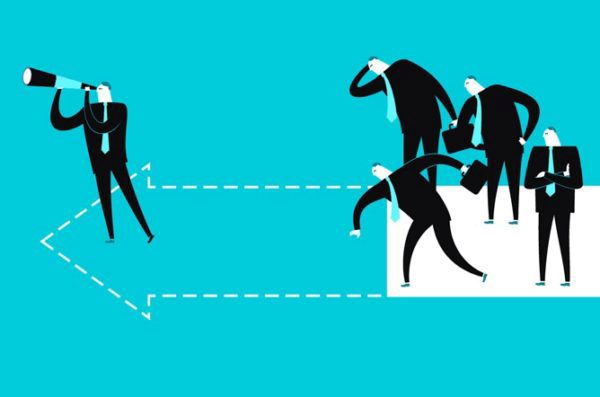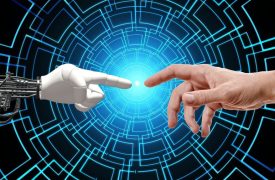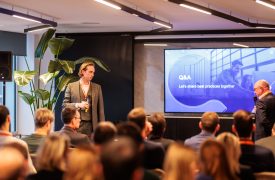Lees top 10: Zo leidt u grotere veranderingen

1. Netflix Is About to Lose Two of Its Most Popular Shows. Here's Why It's a Really Big Deal
If you need a reason to believe that the loss of these two shows is a big deal, remember that Netflix paid $100 million less than a year ago just to keep Friends around through 2019. That's a lot of cash for a show that hasn't been on television for over 15 years.
2. Can Emotion Be Automated?
When it comes to computational heavy lifting, artificial intelligence (AI) beats humans every time. But within the current technological limitations, no amount of number-crunching alone has yet enabled AI to develop emotional intelligence (EI). So far, there is no code for that. Even the most responsive chatbots rely upon speech recognition, natural language processing and other algorithms, making them incapable of reading between the lines of human communication.
3. A better way to lead large-scale change
In Beyond Performance 2.0 (John Wiley & Sons, 2019), McKinsey senior partners Scott Keller and Bill Schaninger draw on their 40-plus years of combined experience, and on the most comprehensive research effort of its kind, to provide a practical and proven “how to” guide for leading successful large-scale change.
4. Four Ways to Help Your Team Avoid Digital Distractions
Today’s smartphone users check their phones 150 times a day, which is the equivalent of spending 2.5 hours a day just opening and closing the phone. A single text message, which takes approximately 2.2 seconds to read, can double error rates on basic tasks; even worse, workers find that it takes an average of 11 minutes to get back into the flow of the previous task. Our phones have become compulsions, rather than tools of efficiency.
5. Five Ways CFOs Can Use AI — Today
The CFO sits at the center of customer data flows: sales data, pricing information, receivables updates — the list goes on. This puts the CFO in a powerful position to link predictive analytics with customer behavior. There are highly practical ways that CFOs can use AI right now to bring new efficiencies to the enterprise. Here are five of them.

6. Six Powerful Ways to Turn Setbacks Into Opportunities
Say you've been putting in extra hours for the past two years trying to meet a career benchmark–then, suddenly, a personal emergency puts a halt to your plans (and a significant dent in your confidence). It's easy to fall into a spiral of despair when you've made significant strides toward pursuing a dream only to watch it fall apart.
7. Investing in training offers a competitive boost
Globally, 84% of organisations are boosting their investment in reskilling programmes in the face of automation, and 53% say they will increase their training budget by 6% or more this year, Deloitte found in its 2019 Global Human Capital Trends report. And recruiting company Robert Half Finance & Accounting recently reported that 94% of CFOs surveyed said their US companies pay some or all of the costs for their employees to obtain professional certifications.
8. H&M on the sustainability challenge
"Our board of directors reviews a set of metrics every six months, our CEO and CFO every three months. We publish these and more metrics annually. Additionally, we have the 4C scorecard – a set of KPIs consisting of four pillars, whereof sustainability is one. This is used to measure performance within our different business units and brands and is as such also used as a tool for performance review for concerned executives.”
9. Cyber Security: What You Need to Know to Face the Inevitable
While the massive malware attacks like WannaCry or NotPetya garner all the headlines, these are relative rarities in cybercrime. Joe Scargill, U.S. Secret Service Agent, explains that the true culprit is “phishing – business email compromising – almost 100% of the time. The massive breaches at corporations are almost once-in-a-lifetime cases. These business email compromises are very convincing. They’re relatively ‘low-tech’ and use a little bit of social engineering.”
10. The Future Of Work: 5 Important Ways Jobs Will Change In The 4th Industrial Revolution
In many respects, the future of work is already here. Amid the headlines exclaiming the predicted loss of jobs due to automation and other changes brought by artificial intelligence (AI), machine learning and autonomous systems, it’s clear that the way we work and live is transforming. This evolution can be unnerving. Since we know change is inevitable, let’s look at how work will likely change and some ideas for how to prepare for it.


















